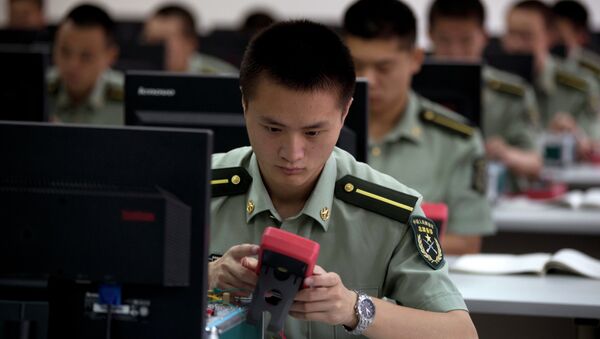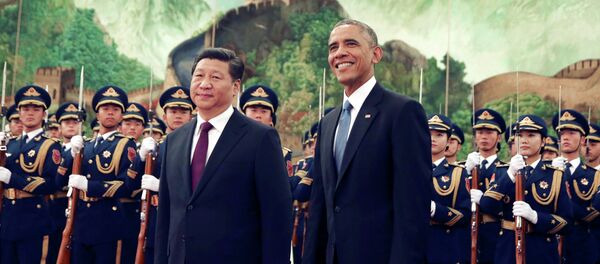"Western hostile forces, as well as a few 'ideological traitors' in our country, are using the Internet on their computers and mobile phones to viciously attack our party," reads a piece in the People’s Liberation Army Daily, a leading Communist Party journal for the Chinese military.
The paper argues for stricter Internet controls to ensure that ideological impurities aren’t forced upon the People’s Republic. It’s a view long-held by the Communist party, and has since been reinvigorated under President Xi Jinping.
"Western anti-China forces have consistently sought in vain to make use of the Internet to topple China," the journal reads, calling the Internet a weapon in a "hidden war" to influence the masses, with the purpose of using "'universal values' to confuse us, and 'constitutional democracy' to disturb us."
To counter those attacks, the military is calling for an army of “seed-planters and propaganda teams” to guard the "online Great Wall." Without such safeguards, the "public will be led astray by the enemy."
To prove its resolve, Beijing is about to invest heavily in Internet infrastructure. According to the State Council, the Chinese government is preparing to spend over $182 billion to increase Internet speeds by 2017. To improve networks, $69.3 billion will be spent this year, with another $112.8 billion reserved for the next two.
Both of these developments are related to Beijing’s interest in diversifying its economy. Moving away from manufacturing, the China of 2025 could see significantly stronger sectors in space, green energy, bioengineering, and e-commerce. Improved development of fiber optics and 4G mobile networks will be crucial to growing those industries.
The military could also be responding to the NSA’s illegal hacking into Chinese servers. Documents released last year by former NSA contractor Edward Snowden revealed that US intelligence agencies had engaged in digital surveillance against the Chinese government for years.
"China has already lodged many complaints with the United States about this," Chinese foreign ministry spokesman Hong Lei said at the time. "We demand that the United States makes a clear explanation and stop such acts."
Defending against a digital “hidden war” would also fall in line with Beijing’s recent trend of cutting the products of US-based technology companies from its purchasing lists. Over the last two years, the Central Government Procurement Center has added nearly 2,000 products to its purchasing list, most of which were from domestic companies.
Many have blamed this on the US government’s habit of installing backdoor encryption access into the products of major brands, like Apple, McAfee, and Citrix.
"The Snowden incident, it’s become a real concern, especially for top leaders," Tu Xinquan, Associate Director of the China Institute of WTO Studies at the University of International Business and Economics in Beijing, told Reuters.
"In some sense the American government has some responsibility for that; [China’s] concerns have some legitimacy."







